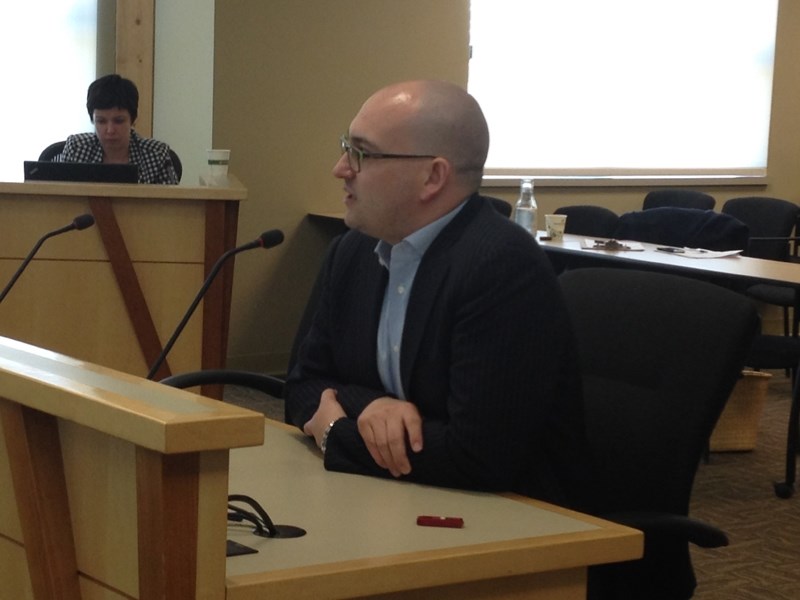The Canadian Association of Petroleum Producers (CAPP) would like municipalities across the province to change the tax rates they charge oil and gas companies, according to Chris Montgomery, the organization's manager of exploration and production communications.
He appeared as a delegation before Mountain View County councillors at the recent regularly scheduled council meeting.
The steep decline in oil prices over the past two years has had a large negative impact on companies, he said.
As a result, those companies are looking for a change in the tax regime of municipalities in an effort to save costs, he said.
Specifically, the companies would like to see the tax rate ratio cap for non-residential to residential properties drop from 3.7:1 to 2:1.
“Current pricing is forcing companies to look at all costs in making investment decisions, including municipal tax burden,” he said.
Montgomery gave councillors an overview of the current state of the oil and gas industry.
“Obviously since August 2104 we have seen depressed oil prices,” he said. “It's been a prolonged downturn. Gas prices have been low since 2008. Although the oil prices have really come down, our gas producers are facing the same challenges that the oil producers are today.”
In 2014 the oil and gas sector invested $81 billion of capital into the economy, representing by far the largest investment by sector. (The utilities sector was second highest, investing $31 billion).
In 2016 the forecast is for capital investment by the oil and gas sector to be $31 billion.
“That is by far the largest two-year decline going back to 1947,” he said.
There have been more than 44,000 direct job losses in the oil industry since 2014.
Much of the downturn in the Canadian industry can be traced to greatly increased oil and gas production in the U.S. over the past five years, he said.
“The U.S. in the last five years has basically brought on the entirety of the current Canadian production. This is creating a fundamental challenge for our Canadian producers because as the U.S. is bringing on the supply, they also represent our only foreign customer for both oil and natural gas.
“That's why you've seen an elevated conversation from the industry and from government around the need for pipeline access to move our oil east and west and to get our gas off the continent through large-scale liquefied natural gas projects on the coast of British Columbia.”
Coun. Al Kemmere told Montgomery municipalities are now having to pay provincial education taxes owed by bankrupt oil and gas companies.
“We do have an issue with the challenges of taxes and some (companies) not paying even if they are functioning companies choosing to step back and say, ‘well, we'll take the penalty and we will take the concurrent penalties but we just aren't going to pay our taxes right now'.
“This has become a burden for some municipalities so it needs to be acknowledged that it is going on in this whole process.”
Montgomery said, “I didn't realize that municipalities were on the hook for the education portion of those taxes, even if it's the company that's defaulting on the tax. I've highlighted that for our folks and they are going to look at that.”
The Alberta Association of Municipal Districts and Counties (AAMDC) recently passed a resolution calling for education taxes owed by bankrupt oil and gas companies and passed on to municipalities to be waived.
"Current pricing is forcing companies to look at all costs in making investment decisions, including municipal tax burden."Chris MontgomeryCAPP



